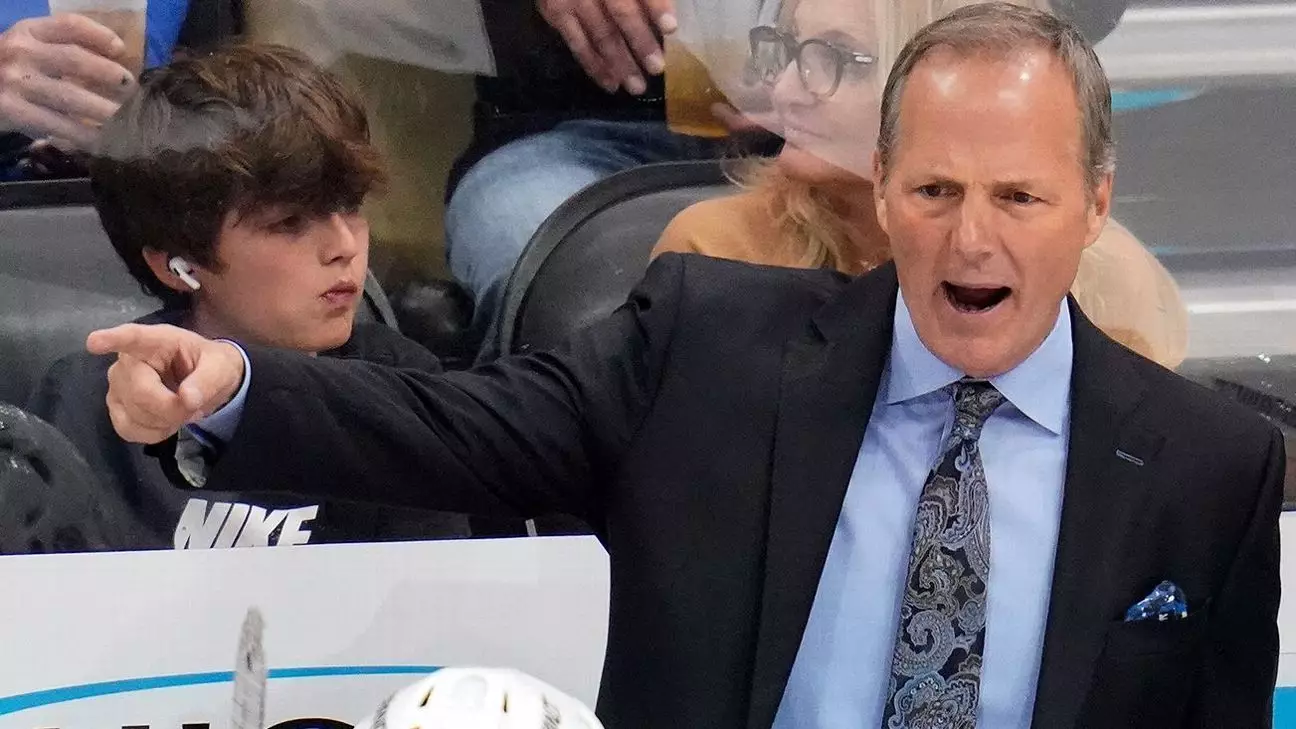In the high-stakes world of professional sports, the relationship between a coach and management can often determine the fortunes of a team. In this regard, Jon Cooper’s enduring presence with the Tampa Bay Lightning has been nothing short of remarkable. General Manager Julien BriseBois recently confirmed that Cooper will be back for the 2025-26 season, putting to rest any whispers of a potential divorce after a disappointing playoff performance. Such decisions reflect not only the confidence in Cooper’s skills as a tactician but also the broader vision the organization has for its future. After a series of playoff disappointments, it seems counterintuitive to maintain leadership, but in this case, perseverance and continuity take precedence.
Cooper’s tenure has seen immense successes, including back-to-back Stanley Cup victories in 2020 and 2021. His coaching style goes beyond just winning games—it encapsulates fostering a strong team culture, nurturing players, and establishing a community bond that transcends the rink. It’s not just about numbers; it’s about crafting an identity for the Lightning, largely driven by Cooper’s approach to the game. This commitment is not easily replicated, so letting Cooper go would inevitably disrupt the meticulous structure he has built over his time in the organization.
The Challenge of Expectations
However, a shadow looms over past glories. The Lightning’s struggle to advance beyond the first round of the playoffs for three consecutive seasons weighs heavily. Particularly painful was the back-to-back five-game defeat to intra-state rivals, the Florida Panthers. This has initiated a renewed scrutiny of Cooper’s methods and his ability to spur the team to greater heights when it matters most. Critics might argue that a fresh voice could invigorate the locker room, but one must consider that such upheaval could also risk distorting the culture that has been painstakingly developed.
When reflecting on the challenges the team faces, Cooper’s own words stand out: “It was our turn for a while. Now it’s theirs.” This acknowledgment reveals both humility and a fierce competitive spirit that are vital traits for a leader. Great coaches often know how to pivot in response to the challenges presented by their competitors, and Cooper’s message was not just one of introspection but a rallying cry to reclaim their rightful place within the league hierarchy.
The Unwritten Future
Looking ahead, Cooper’s vision aligns with the management’s confidence—his contract extending through the 2025-26 season signals a commitment to stability in an ever-changing sports landscape. Critics may have voiced their concerns, but both BriseBois and Cooper appear united in a quest for improvement, not just through a change in personnel but through refining their existing strategy. The pressure now lies in crafting a plan that effectively addresses previous shortcomings while capitalizing on their vast pool of talent.
Moreover, speculation has surrounded Cooper’s future, with notions of potential endeavors elsewhere surfacing. His association with figures like Ryan Smith of the Utah Hockey Club has led some to wonder if the Lightning will continue to be home for him. Yet Cooper himself has been steadfast in expressing loyalty to the franchise, emphasizing the emotional connection he feels toward Tampa, how it represents home for his family, and how no organization could surpass what he has built and experienced there.
A Shift in Focus
While maintaining much of the core structure, the Lightning faces the additional challenge of roster adjustments and renewing contracts for promising talent, such as Hobey Baker Award winner Isaac Howard. The prospect of Howard exploring free agency highlights the necessity for expert negotiation and recruitment strategies moving forward. BriseBois’ comments about Howard’s preferences indicate a broader strategy of entwining player development with the identity of the team—something that has been a hallmark of Cooper’s philosophy.
As the days to the next season dwindle, Cooper and BriseBois will have to work in tandem to not only address the immediate roster needs but also to rediscover the elusive success that has so far eluded the Lightning during playoff runs. In this pursuit, there lies an opportunity for both men to redefine their legacy in Tampa —turned from champions to fighters — intent on coming back stronger.
This time, it’s about learning from history, facing challenges head-on, and evolving as a team. It’s a powerful testament to resilience and the belief that their best days may still be ahead of them, rooted firmly within an organization that has weathered storms before.


Leave a Reply